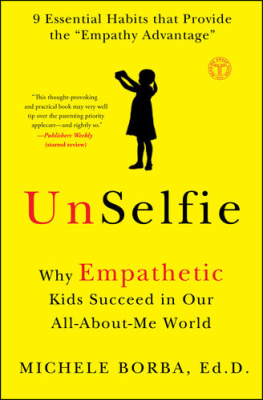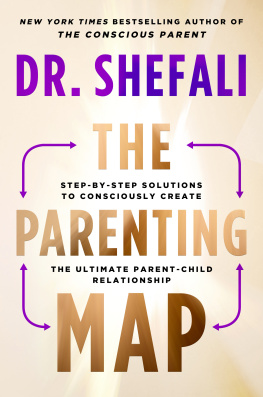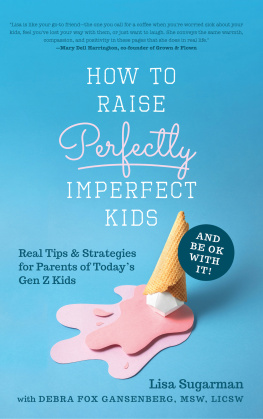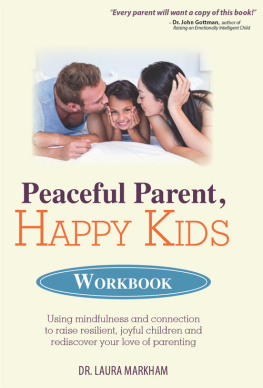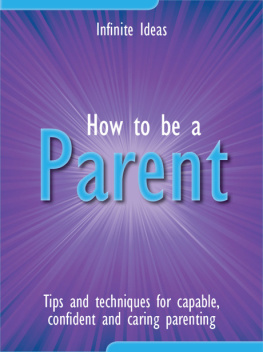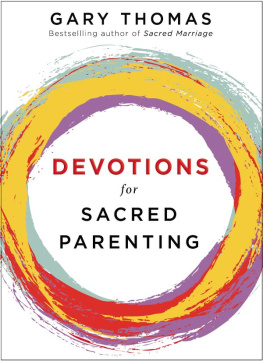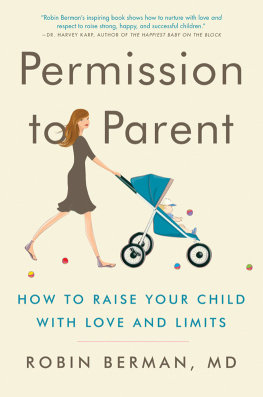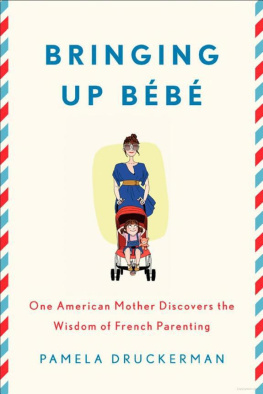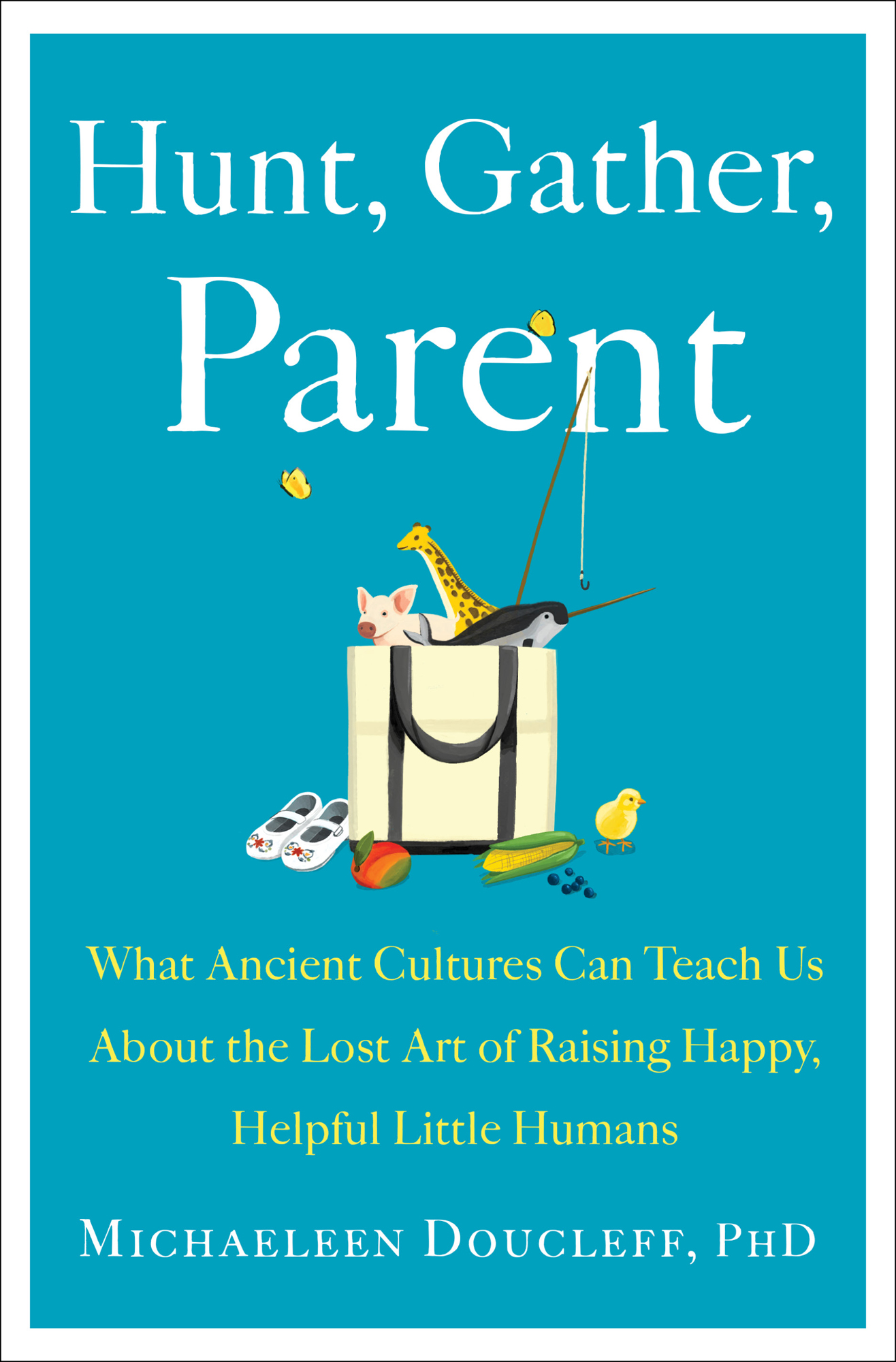Contents
Guide
A VID R EADER P RESS
An Imprint of Simon & Schuster, Inc.
1230 Avenue of the Americas
New York, NY 10020
www.SimonandSchuster.com
Copyright 2021 by Michaeleen Doucleff
All rights reserved, including the right to reproduce this book or portions thereof in any form whatsoever. For information, address Avid Reader Press Subsidiary Rights Department, 1230 Avenue of the Americas, New York, NY 10020.
First Avid Reader Press hardcover edition March 2021
A VID R EADER P RESS and colophon are trademarks of Simon & Schuster, Inc.
This publication contains the opinions and ideas of its author. It is intended to provide general guidance and information about parenting, including parenting philosophies, advice, and techniques. It is sold with the understanding that the author and publisher are not engaged in rendering medical, health, or any other kind of personal professional services in the book. The author and publisher specifically disclaim all responsibility for any liability, loss, or risk, personal or otherwise, which is incurred as a consequence, directly or indirectly, of the use and application of any of the contents of this book.
For information about special discounts for bulk purchases, please contact Simon & Schuster Special Sales at 1-866-506-1949 or .
The Simon & Schuster Speakers Bureau can bring authors to your live event. For more information or to book an event, contact the Simon & Schuster Speakers Bureau at 1-866-248-3049 or visit our website at www.simonspeakers.com.
Interior design by Joy OMeara
Jacket design by Alison Forner
Jacket illustration by Jonathan Bush
Author photograph Simone Anne
Library of Congress Cataloging-in-Publication Data has been applied for.
ISBN 978-1-9821-4967-3
ISBN 978-1-9821-4969-7 (ebook)
In memory of Mango, the best book shepherd a writer could have
To Rosy
PROLOGUE
I remember the moment I hit rock bottom as a mom.
It was five oclock on a chilly December morning. I lay in bed, wearing the same sweater I had worn the previous day. My hair hadnt been washed in days.
Outside, the sky was still dark blue; streetlights still glowed yellow. Inside, our house was eerily quiet. All I could hear was our German shepherd, Mango, breathing on the floor below our bed. Everyone was asleep, except me. I was wide awake.
I was preparing for battle. I was going over in my head how to handle my next encounter with the enemy. What will I do when she strikes me again? When she hits? Kicks? Or bites?
It sounds horrible to call my daughter the enemy. Goodness knows, I love her to death. And in many ways, shes a wonderful little person. Shes whip smart, wildly courageous, and has the strength of an ox, both physically and mentally. When Rosy falls down at the playground, she gets right back up. No fuss, no muss.
And did I mention her smell? Oh, I love the way she smells, especially right on the top of her head. When Im on a reporting trip for NPR, thats what I miss the most: her smell, like a mixture of honey, lilies, and wet soil.
That sweet fragrance is beguiling. Its misleading, too. Theres a fire in Rosys belly. A red-hot fire. The fire drives her, makes her march through the world with ferocious purpose. As one friend put it: shes a destroyer of worlds.
When Rosy was an infant, she cried a lot. Hours and hours each evening. If she isnt eating or sleeping, shes crying, my husband told the pediatrician, in a panic. The doctor shrugged. She had clearly heard this all before. Well, she is a baby, the doctor replied.
Now Rosy was three years old, and all the crying had morphed into tantrums and a torrent of parental abuse. When she had a meltdown and I picked her up, she had the habit of slapping me across the face. Some mornings, I left the house with a red handprint across my cheek. Man, it hurt.
That quiet December morning, as I lay in bed, I allowed myself to acknowledge a painful truth. A wall was rising between Rosy and me. I had started dreading our time together because I was afraid of what would happenafraid I would lose my temper (again); that I would make Rosy cry (again); that I would only make her behavior worse (again). And as a result, I feared that Rosy and I were becoming enemies.
I grew up in an angry home. Screaming, slamming doorseven throwing shoeswere all basic means of communication for my parents, my three siblings, and me. And so with Rosys tantrums, at first, I reacted as my parents had treated me, with a mixture of anger, sternness, and sometimes loud, scary words. This response only backfired: Rosy would arch her back, screech like a hawk, and fall onto the ground. Besides, I wanted to do better than my parents. I wanted Rosy to grow up in a peaceful environment, and to teach her more productive ways of communicating than throwing a Doc Marten at someones head.
So I consulted Dr. Google and decided that authoritative was the optimal parenting approach that would help curb Rosys tantrums. From what I could tell, authoritative meant being both firm and kind. And so I tried my best at doing just that. But I never got it right because, time and time again, the authoritative approach failed me. Rosy could tell I was still angry, and so wed get trapped in the same cycle. My anger would make her behavior worse. I would become angrier. And eventually, her tantrums turned nuclear. Shed bite, flail her arms, and start running around the house upturning furniture.
Even the simplest of taskssuch as getting ready for preschool in the morningshad turned into battles royale. Can you please just put your shoes on? I would beg for the fifth time. No! she would scream, and then proceed to take off her dress and her underwear.
One morning I had felt so bad, I knelt down below the kitchen sink and screamed silently into the cabinets. Why is it all such a struggle? Why wont she listen? What am I doing wrong?
If I were honest, I had no clue how to handle Rosy. I didnt know how to stop her tantrums, let alone begin the process of teaching her how to be a good persona person who is kind, helpful, and concerned about other people.
Truth is, I didnt know how to be a good mother. Never before had I been so bad at something that I wanted to be good at. Never before had the gap between my actual skill and the skill level I desired been so crushingly wide.
And so there I was lying in bed, in the wee hours of the morning, dreading the moment when my daughterthe beloved child I had spent many years longing to havewoke up. Searching in my mind for a way to connect with a small person who seemed, many days, like a raging maniac. Searching for a way out of this mess Id made.
I felt lost. I felt tired. And I felt hopeless. When I looked ahead, all I could see was more of the same: Rosy and I would remain locked in constant battle, with her growing only taller and stronger as time went on.
But that wasnt what happened, and this book is about how that unexpected and transformative shift in our lives happened. It began with a trip to Mexico, where an eye-opening experience led to other trips, in different corners of the worldeach time with Rosy as my travel companion. Along the way, I met a handful of extraordinary moms and dads who generously taught me an unbelievable amount about parenting. These women and men showed me not only how to tame Rosys tantrums, but also a way to communicate with her that doesnt involve yelling, nagging, or punishinga way that builds up a childs confidence instead of building tension and conflict with a parent. And perhaps, most important, I learned how to teach Rosy to be kind and generous to me, her family, and her friends. And a part of why this was all possible is because these moms and dads showed

